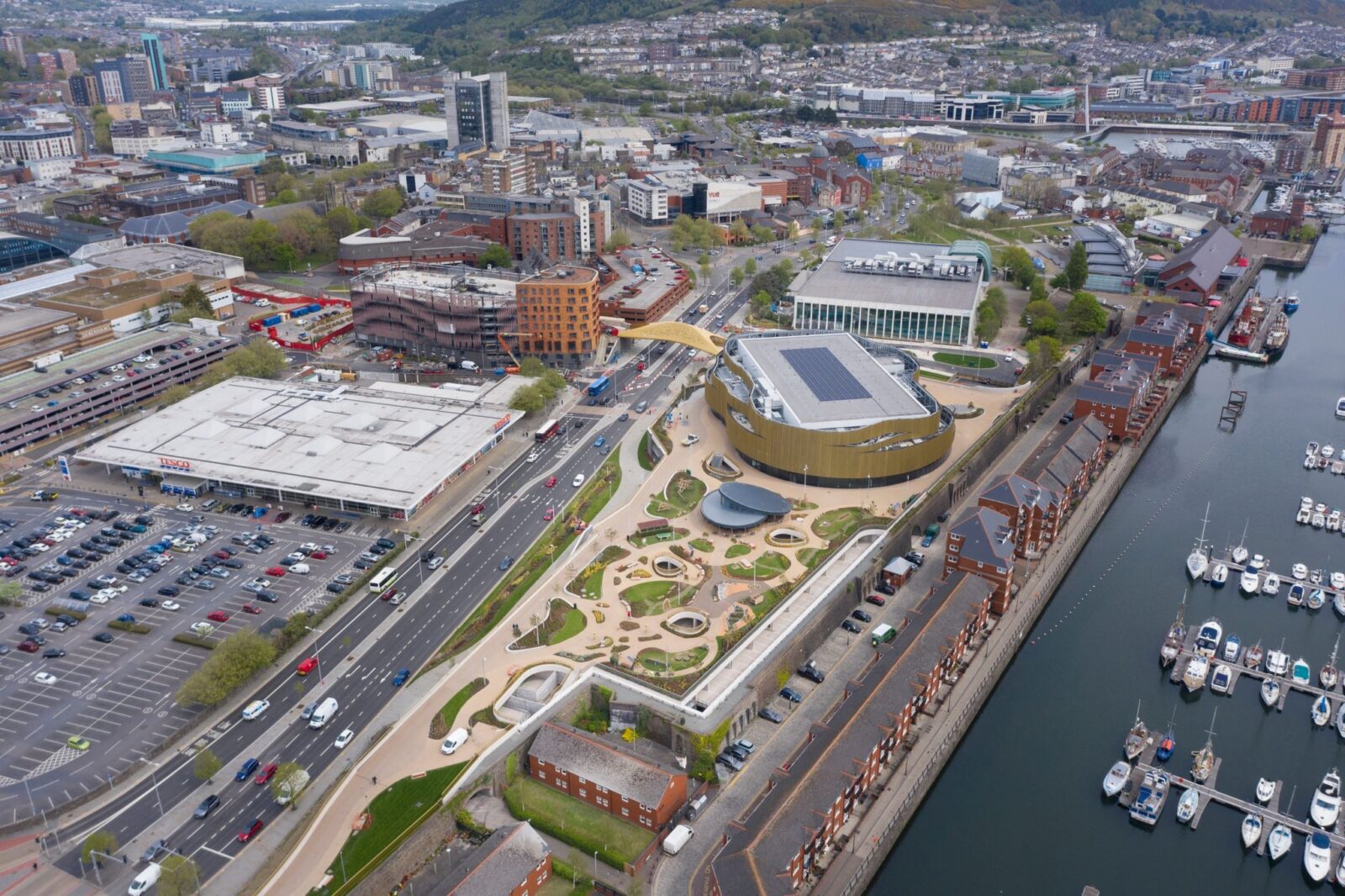A major new heating network is in the pipeline for Swansea to help save businesses money on their energy bills and cut the city’s carbon footprint.
The low carbon heating network would use excess heat from a large data centre that’s due to form part of the £4bn renewable energy project in the area of Swansea port.
Led by Bridgend-based DST Innovations, the overall project is also set to include a tidal lagoon, a high-tech battery manufacturing centre, eco-homes anchored in the water and an oceanic and climate change research centre.
The proposed heating network would heat a number of buildings in the SA1 and city centre areas of Swansea by connected pipes. It would cover the area between the Swansea University campus on Fabian Way and the Civic Centre on Oystermouth Road, including developments in the docks and SA1 area, as well as other buildings like Swansea Museum and HMP Swansea.
Swansea Council’s cabinet is now being asked to approve a study that would further explore the feasibility of the district heating network, thanks to funding from the UK Government for the work.
Cllr Rob Stewart, Swansea Council Leader, said: “We’re all aware of the impact of climate change and the importance of taking steps to reduce its effects on us and future generations.
“This is why we’ve set a target of becoming a net zero city by 2050 and will continue do all we can alongside Swansea’s businesses and residents to reach that goal.
“Working closely alongside DST Innovations and their partners, we’ve identified the opportunity for a low carbon heating network linked to the overall development that would heat many of Swansea’s major buildings in SA1 and the city centre.
“Along with the other aspects of this ground-breaking project it will significantly reduce Swansea’s carbon footprint, while creating thousands of jobs and placing our city at the heart of global green economy innovation.”
The Heat Networks Delivery Unit (HNDU) is part of the Department of Energy Security and Net Zero. Since 2013, it has provided revenue grant funding and guidance to local authorities in England and Wales for early-stage heat network project development.
To date it has awarded £33.8m in revenue funding to over 300 unique projects. HNDU’s remit was recently expanded to include other potential heat network developers, including registered social landlords, NHS Trusts, universities and property developers.
Agreement has already been reached for the land agreements which would need to be put in place between Swansea Council, DST and Batri Ltd for other elements of the overall scheme. These include:
- Expanding the Fabian Way park and ride site to create a green energy transport hub to potentially include a hydrogen manufacturing station for hydrogen-powered transport, an abundance of electric vehicle charging points, and restaurants and flexible working areas for visitors to enjoy.
- Expanding on approved solar farm plans at the former Tir John landfill site to create one of the UK’s largest solar energy generating facilities.
- A new manufacturing facility on the former Morrissey Site in SA1 to make high-tech batteries that would store the renewable energy generated by the project and for worldwide distribution.








Leave a Reply
View Comments